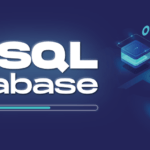SQL databases have been a mainstay in the world of data management for decades, and they continue to be popular due to their robust features and ease of use. SQL databases are used in a wide range of applications, from small businesses to large enterprises, and they provide a number of benefits that make them an attractive choice for data management.
Benefits of SQL Databases:
- Relational Structure: SQL databases are based on a relational structure, which means that data is organized into tables, columns, and rows. This structure makes it easy to manage and query large amounts of data, as you can easily relate different tables and columns to each other.
- Query Language: SQL provides a powerful and flexible query language that allows you to perform complex data analysis, aggregation, and reporting. With SQL, you can extract meaningful insights from your data and make informed decisions.
- Data Integrity: SQL databases provide strict data integrity controls, which help ensure that your data is accurate, consistent, and up-to-date. With data integrity controls in place, you can be sure that your data is reliable and that your reports and analyses are based on accurate information.
- Scalability: SQL databases are highly scalable, which means that they can handle large amounts of data and traffic without slowing down. As your data grows, you can easily expand the capacity of your database to meet your needs.
Use Cases for SQL Databases:
- Financial Applications: SQL databases are often used in financial applications, as they provide a robust and secure platform for managing financial data. With an SQL database, you can easily track transactions, manage accounts, and generate financial reports.
- Retail and e-Commerce: SQL databases are also used in retail and e-commerce applications, as they provide a flexible and scalable platform for managing customer data, product information, and sales transactions.
- Healthcare: In the healthcare industry, SQL databases are used to manage patient data, track medical records, and support research and analysis. With an SQL database, healthcare organizations can ensure that patient data is accurate and up-to-date, and that they can quickly access the information they need to provide the best possible care.
- Government: Government agencies use SQL databases to manage a wide range of data, including census data, crime statistics, and tax records. With an SQL database, government agencies can ensure that data is accurate, secure, and easily accessible.
In conclusion, SQL databases are a powerful and flexible platform for data management, and they provide a number of benefits that make them an attractive choice for a wide range of applications. Whether you are a small business owner, a healthcare professional, or a government worker, an SQL database can help you manage your data effectively and make informed decisions based on accurate information.
Not sure whether to choose a NoSQL database or a SQL database, read it now!






